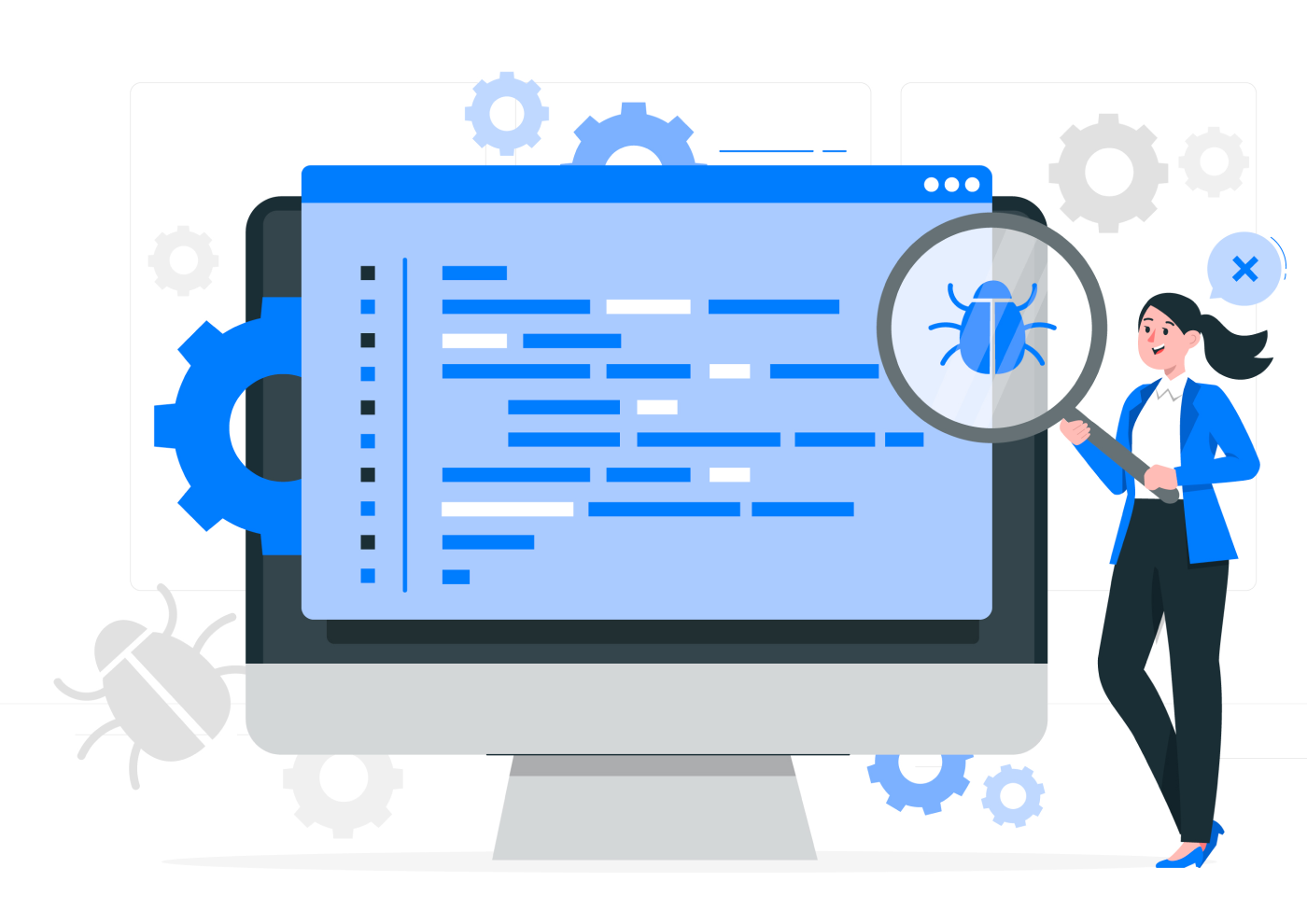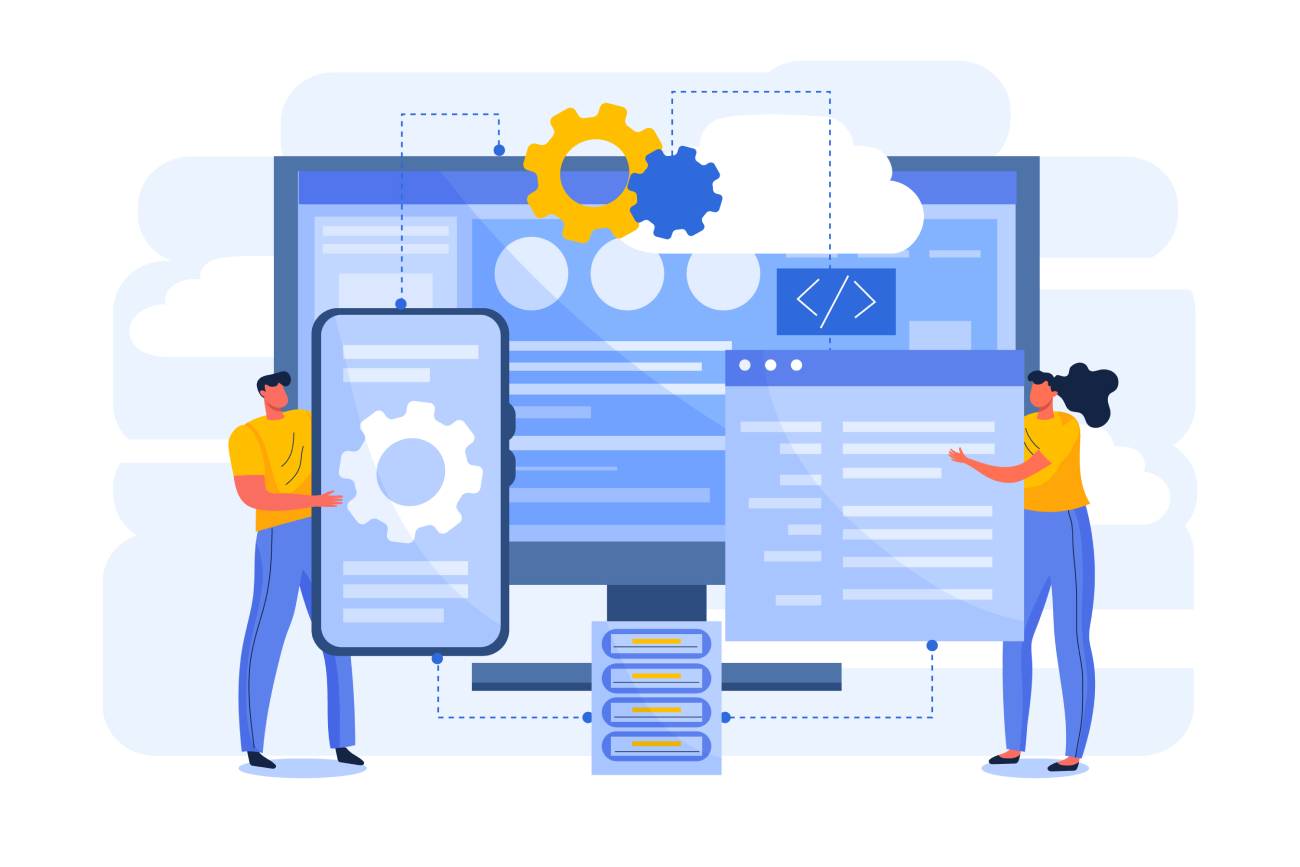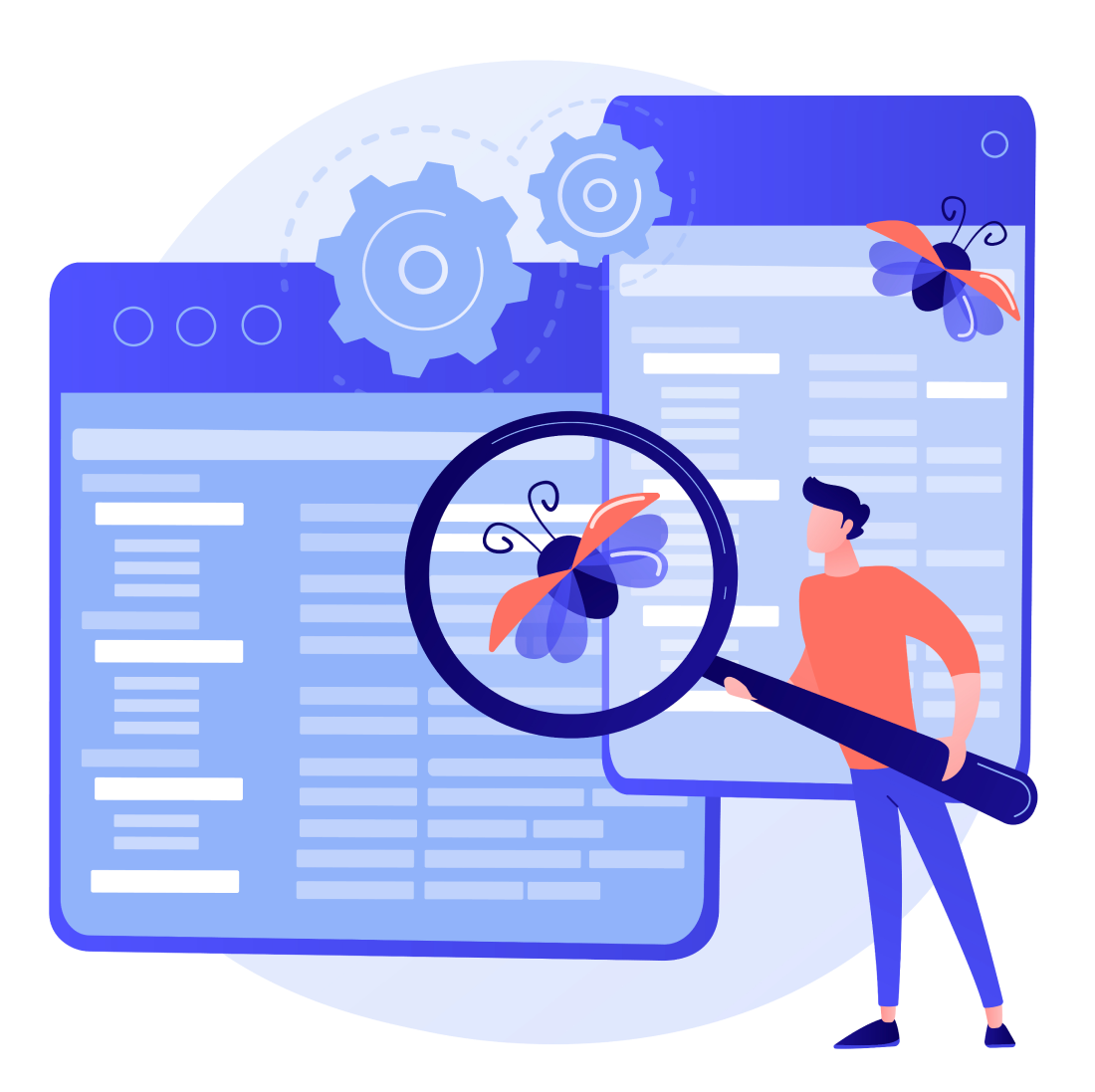Testing Of Newly Introduced Software Functions
Testing of newly introduced software functions focuses on verifying the correct implementation and seamless integration of new features within existing systems. For 35 years, QA-Cs has specialized in targeted testing strategies to ensure new functionalities align with design specifications and operate without disrupting established workflows. This process includes thorough API and UI testing across various levels of complexity, ensuring new additions meet both technical and functional standards while delivering a smooth user experience.

Qa-CS In Brief
Functional testing is aimed to ensure the softwares full compliance with its functional requirements being performed at different granularity levels. For 35 years QA-Cs has been providing multi-level API and UI functional testing of solutions varying in tech and architectural complexity.
35 years in software testing
730+ completed testing projects since 2010
Over 75 testing specialists with experience in complex industry-specific projects
ISTQB certification of Qa-Cs testing team members
ISO 9001-certified quality management system
Customer information security ensured by ISO 27001 certification.
Qa-Cs is a 3-Year Champion in The Americas’ Fastest-Growing Companies Rating by the Financial Times.

Functional Testing We Provide
We are ready to provide both manual and automated testing services. Relying on your project requirements, we will propose an optimal approach to automating functional testing efforts in your project.

Lets Talk Business
Contact us to learn more We are open for communication 24/7.
Application Types We Test
QA-CS provides comprehensive testing services across a variety of application types to ensure optimal performance. Here are the main types of applications we specialize in testing:
BI and big data solutions
Customer mobile applications
Web portals
IoT solutions
Enterprise applications
Enterprise mobile applications
Methodologies We Support
We are well-versed in setting up test processes and performing testing activities in projects managed according to a range of methodologies.
Waterfall
V-model
Customized RUP
Iterative development
Scrum and customizations
MSF
Cooperation Model
We provide functional software testing services under the three cooperation models:

Managed testing services
Our testing team takes up all testing activities.
Team augmentation
Our testing team takes up all testing activities.
Setting up your testing team
Our testing team takes up all testing activities.
Our Approach to Functional Testing
We set off at the very beginning of the software development lifecycle. The testing process covers 3 main stages:
01
Requirements analysis and clarification
Our specialists seamlessly integrate into your project team. The testing team works closely with BAs, developers and stakeholders to prevent unclear requirements in the specification.
Outcomes: The testing team dives into the project scope and specifics and drafts the test strategy.
02
Test planning and test design
Our specialists seamlessly integrate into your project team. The testing team works closely with BAs, developers and stakeholders to prevent unclear requirements in the specification.
Drafting Test Plan: The Test Lead drafts a detailed test plan that is reviewed by stakeholders and approved.
Test Design: The testing team writes test cases/checklists according to the test plan and unite them into a test case document. Each requirement in the specification is transformed into a test case, so tests cover as much of specified behavior as possible.
Prep Measures: QA-CS testing team sets up a well-balanced strategy with an optimal mix of manual and automated testing.
Outcomes: The test plan, the test case document, the test environment and the test data are created and approved.
03
Stabilization
Our specialists seamlessly integrate into your project team. The testing team works closely with BAs, developers and stakeholders to prevent unclear requirements in the specification.
Test execution: Relying on the test case document and the test plan, our testing team tests the product using the prepared test data and test environment. For every build, the team runs testing according to the planned test level.
Defect reporting: Our testing team submits all the defects found to your preferred defect tracking system. Then we run exploratory testing powered by the team’s knowledge and experience to make sure no bug was missed.
Test reporting: Our testing team reports the results based on the agreed schedule. Test progress reports include:
Defect Validation: When the defects are fixed, the testing team validates them to make sure they are gone.
Regression Testing: When the defects are validated, the testing team runs regression testing to ensure that the adjacent areas of the application are fully functional. Usually a complete module or a functional block is retested.
Outcomes: The test plan, the test case document, the test environment and the test data are created and approved.
Reporting and Bug Tracking Specifics
We ensure full transparency and control over the testing process delivering a comprehensive set of test documentation:
Checklists and test plan
Atlassian Jira
Test Cases
LogiGear TracGear
Test Result Reports
HP Quality Center
Bugzilla
Retional Clear Quest
Always open to dialogue, we are ready to use bug tracking tools you prefer.
Actions Speaker Louder
With our functional testing services, we have helped industry leaders, including IBM and Tieto, to get a top-quality product within time and budget in the following way:
Avoiding expensive rework (500 – 1000 man-hours) via detecting system bottlenecks at early project stages.
Reducing time between & developers’ idle time during testing by 15% - 20%.
Saving up to 700 man-hours per iteration thanks to automated testing.
@aliceQA
QA-CS transformed our product! Their team identified issues we had missed and provided detailed reports that made fixing those bugs much easier. Their functional testing services are top-notch.
@michael_dev
I'm thoroughly impressed with QA-CS. They handled our regression testing seamlessly, catching potential issues before they impacted our users. Working with them was worth every penny!
@sarah_code
QA-CS is a lifesaver. Their rigorous software testing gave us the confidence to launch our latest update without a hitch. I highly recommend them for their professionalism and reliability.
@aliceQA
QA-CS transformed our product! Their team identified issues we had missed and provided detailed reports that made fixing those bugs much easier. Their functional testing services are top-notch.
@michael_dev
I'm thoroughly impressed with QA-CS. They handled our regression testing seamlessly, catching potential issues before they impacted our users. Working with them was worth every penny!
@sarah_code
QA-CS is a lifesaver. Their rigorous software testing gave us the confidence to launch our latest update without a hitch. I highly recommend them for their professionalism and reliability.
@aliceQA
QA-CS transformed our product! Their team identified issues we had missed and provided detailed reports that made fixing those bugs much easier. Their functional testing services are top-notch.
@michael_dev
I'm thoroughly impressed with QA-CS. They handled our regression testing seamlessly, catching potential issues before they impacted our users. Working with them was worth every penny!
@sarah_code
QA-CS is a lifesaver. Their rigorous software testing gave us the confidence to launch our latest update without a hitch. I highly recommend them for their professionalism and reliability.
@aliceQA
QA-CS transformed our product! Their team identified issues we had missed and provided detailed reports that made fixing those bugs much easier. Their functional testing services are top-notch.
@michael_dev
I'm thoroughly impressed with QA-CS. They handled our regression testing seamlessly, catching potential issues before they impacted our users. Working with them was worth every penny!
@sarah_code
QA-CS is a lifesaver. Their rigorous software testing gave us the confidence to launch our latest update without a hitch. I highly recommend them for their professionalism and reliability.
@david_qa
The QA-CS team exceeded our expectations. Their attention to detail in testing uncovered even the smallest bugs, which we were able to address before our release. Definitely will use them again!
@emily_j_dev
I was blown away by QA-CS's dedication and thoroughness. Their functional and regression testing processes ensured our platform was bug-free. Fantastic service and amazing team!
@chris_testdev
We needed a reliable testing partner, and QA-CS delivered. Their software testing approach caught issues we hadn't considered. Launching a quality product would have been impossible without them.
@david_qa
The QA-CS team exceeded our expectations. Their attention to detail in testing uncovered even the smallest bugs, which we were able to address before our release. Definitely will use them again!
@emily_j_dev
I was blown away by QA-CS's dedication and thoroughness. Their functional and regression testing processes ensured our platform was bug-free. Fantastic service and amazing team!
@chris_testdev
We needed a reliable testing partner, and QA-CS delivered. Their software testing approach caught issues we hadn't considered. Launching a quality product would have been impossible without them.
@david_qa
The QA-CS team exceeded our expectations. Their attention to detail in testing uncovered even the smallest bugs, which we were able to address before our release. Definitely will use them again!
@emily_j_dev
I was blown away by QA-CS's dedication and thoroughness. Their functional and regression testing processes ensured our platform was bug-free. Fantastic service and amazing team!
@chris_testdev
We needed a reliable testing partner, and QA-CS delivered. Their software testing approach caught issues we hadn't considered. Launching a quality product would have been impossible without them.
@david_qa
The QA-CS team exceeded our expectations. Their attention to detail in testing uncovered even the smallest bugs, which we were able to address before our release. Definitely will use them again!
@emily_j_dev
I was blown away by QA-CS's dedication and thoroughness. Their functional and regression testing processes ensured our platform was bug-free. Fantastic service and amazing team!
@chris_testdev
We needed a reliable testing partner, and QA-CS delivered. Their software testing approach caught issues we hadn't considered. Launching a quality product would have been impossible without them.
Get in touch instantly
We are dedicated to providing highly detailed
testing reports that cater to the needs of both.
Call Us
Email Us
